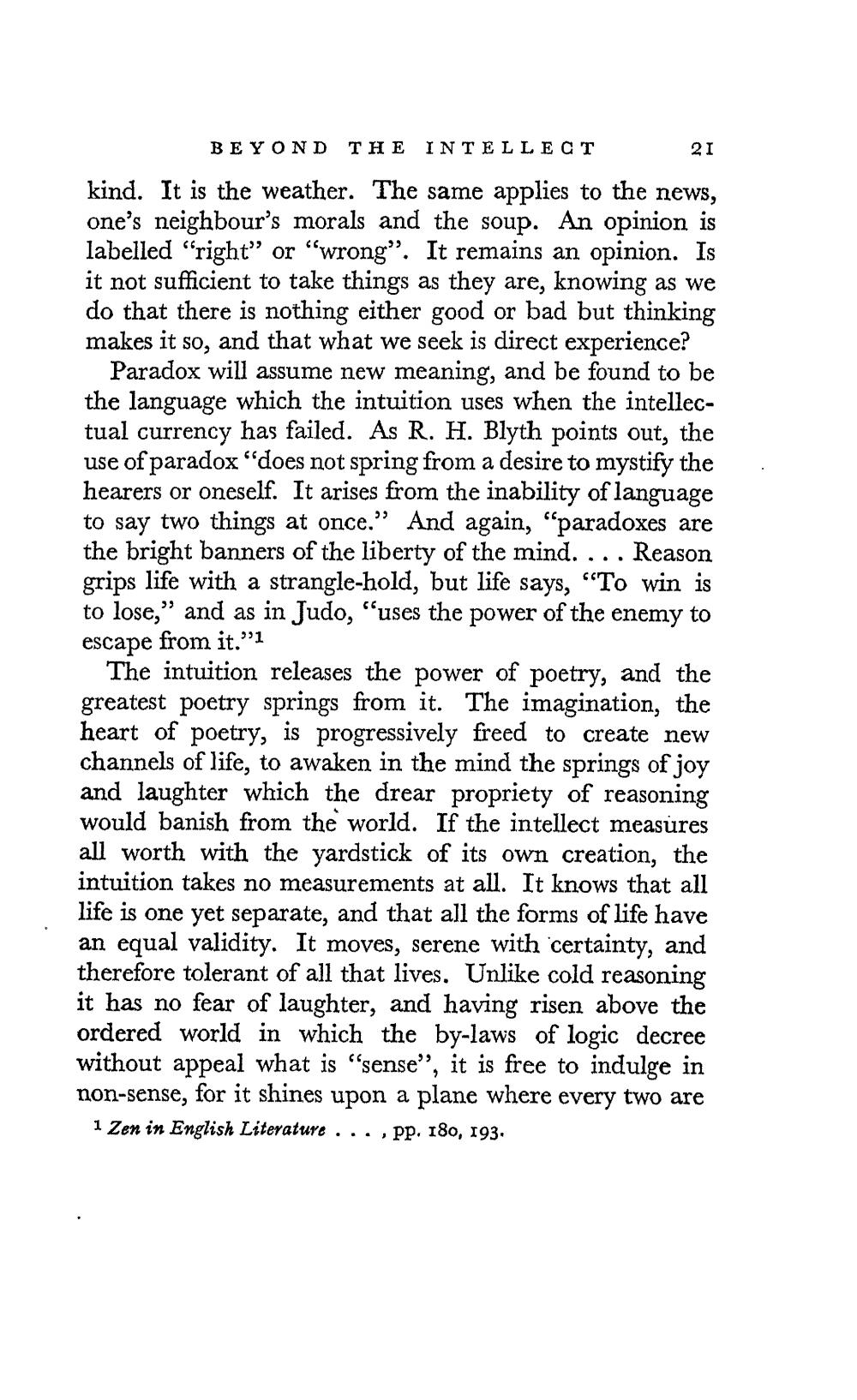________________
BEYOND THE INTELLECT
21 kind. It is the weather. The same applies to the news, one's neighbour's morals and the soup. An opinion is labelled "right" or "wrong". It remains an opinion. Is it not sufficient to take things as they are, knowing as we do that there is nothing either good or bad but thinking makes it so, and that what we seek is direct experience?
Paradox will assume new meaning, and be found to be the language which the intuition uses when the intellectual currency has failed. As R. H. Blyth points out, the use of paradox "does not spring from a desire to mystify the hearers or oneself. It arises from the inability of language to say two things at once." And again, "paradoxes are the bright banners of the liberty of the mind. ... Reason grips life with a strangle-hold, but life says, “To win is to lose," and as in Judo, "uses the power of the enemy to escape from it.”1
The intuition releases the power of poetry, and the greatest poetry springs from it. The imagination, the heart of poetry, is progressively freed to create new channels of life, to awaken in the mind the springs of joy and laughter which the drear propriety of reasoning would banish from the world. If the intellect measures all worth with the yardstick of its own creation, the intuition takes no measurements at all. It knows that all life is one yet separate, and that all the forms of life have an equal validity. It moves, serene with certainty, and therefore tolerant of all that lives. Unlike cold reasoning it has no fear of laughter, and having risen above the ordered world in which the by-laws of logic decree without appeal what is "sense”, it is free to indulge in non-sense, for it shines upon a plane where every two are
1 Zen in English Literature ..., PP. 180, 193.




